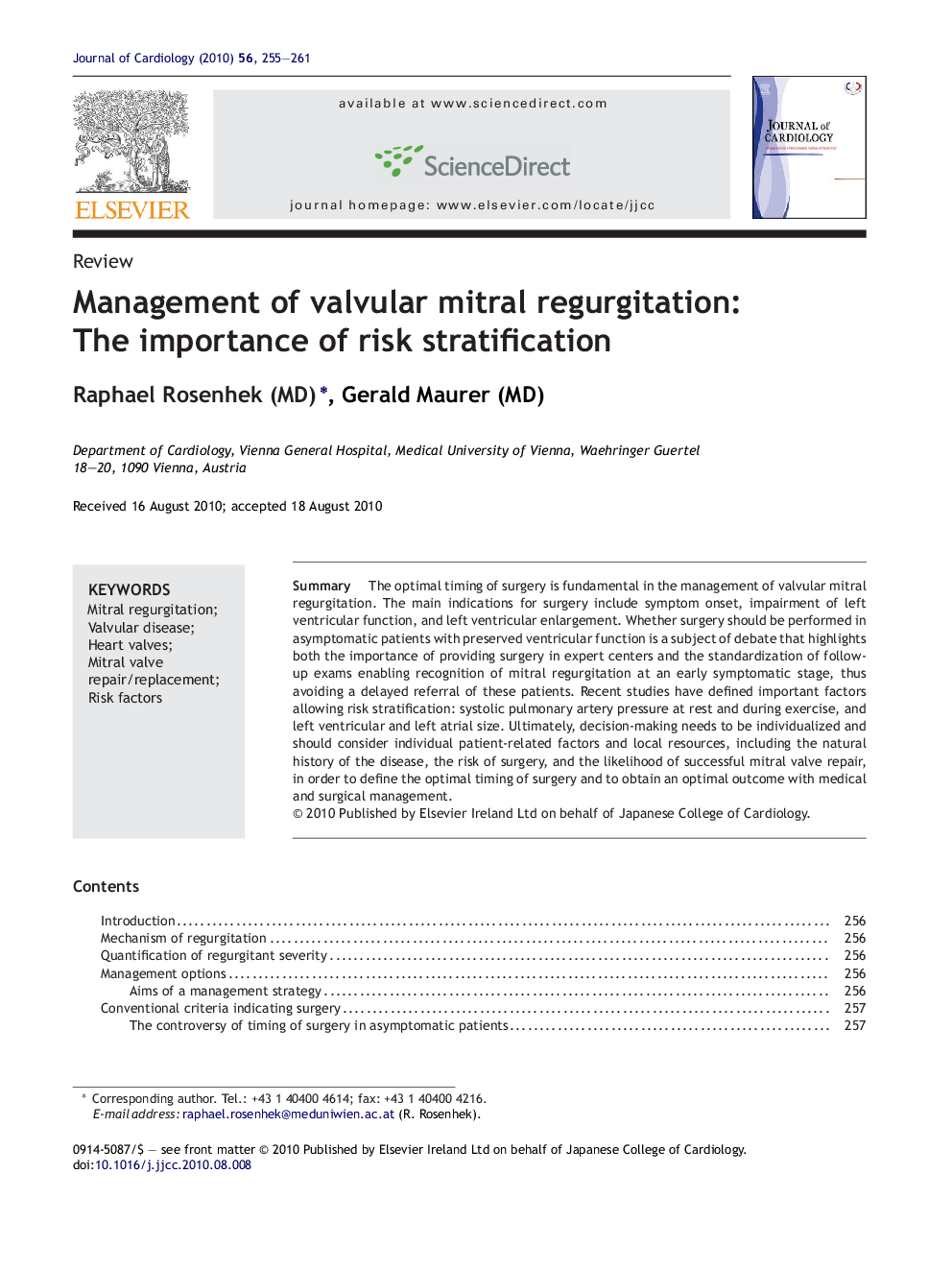| Article ID | Journal | Published Year | Pages | File Type |
|---|---|---|---|---|
| 2963586 | Journal of Cardiology | 2010 | 7 Pages |
SummaryThe optimal timing of surgery is fundamental in the management of valvular mitral regurgitation. The main indications for surgery include symptom onset, impairment of left ventricular function, and left ventricular enlargement. Whether surgery should be performed in asymptomatic patients with preserved ventricular function is a subject of debate that highlights both the importance of providing surgery in expert centers and the standardization of follow-up exams enabling recognition of mitral regurgitation at an early symptomatic stage, thus avoiding a delayed referral of these patients. Recent studies have defined important factors allowing risk stratification: systolic pulmonary artery pressure at rest and during exercise, and left ventricular and left atrial size. Ultimately, decision-making needs to be individualized and should consider individual patient-related factors and local resources, including the natural history of the disease, the risk of surgery, and the likelihood of successful mitral valve repair, in order to define the optimal timing of surgery and to obtain an optimal outcome with medical and surgical management.
